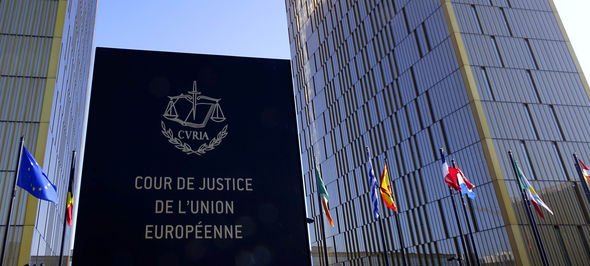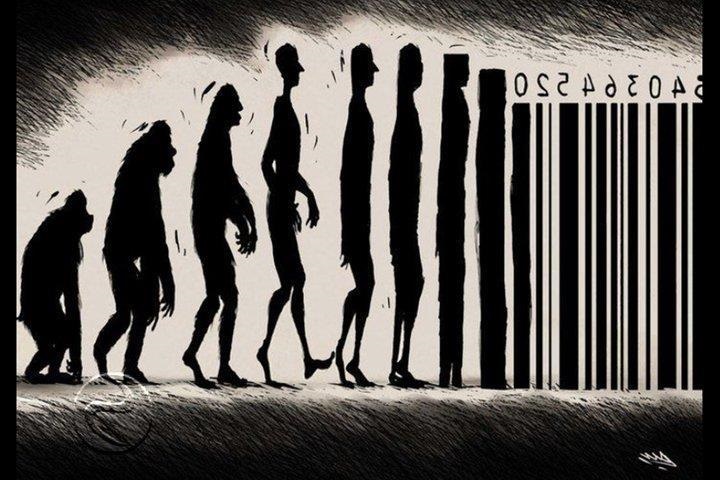Cercare di comprendere i fenomeni di trasformazione della religione nel contemporaneo, quali indicatori di più ampi processi di riconfigurazione degli assetti della convivenza umana, rappresenta un compito importante anche per l’informazione religiosa all’interno della Chiesa italiana. In questa prospettiva, con la pubblicazione di questo contributo diamo inizio a una più stretta collaborazione tra Settimana News e il blog del Research Centre «Religion and Transformation» dell’Università di Vienna.
In examining the changing dynamics of the religious phenomenon in contemporary societies, legal reasoning has often employed terms that can give only the illusion of scientific precision. Terms such as «secularism» and «religion» have been often used as they could automatically designate neutral categories.
Neutrality: in the maelstrom of language
The fact is that recent decisions of European Courts show that the term «neutrality» itself faces this same danger of turning into an empty signifier, or, alternatively, in a word too «full» of meanings. Therefore, the semantic deflation suffered by terms calls for caution, especially when it comes to the protection of freedoms and rights. The philosopher Friedrich von Hayek pointed at the mentioned perversion of language in what he referred to as «weasel words».
The expression comes from a Scandinavian myth that attributed to a weasel the ability to suck out the contents of an egg without breaking its shell. Hayek noted the risk of emptying words of their content, or of stripping them of their meaning, so that only the signifier remains. Far from ignoring that some ambiguity in language is ineradicable, I will try to show the fallacies of a recent judicial decision, which I think that represented a missed opportunity for European Institutions to rule in a proper and inclusive way the religious pluralism brought about by migration.
Here, I would like to deal with the case Achbita, decided in March 2017 by the European Court of Justice. The case raised difficult conceptual legal issues, that have been exacerbated by the inaccurate wording of the judges. The consequent disappointment also comes from the conviction (or the hope) that the European Court of Justice today is undoubtedly one of the main actors in shaping the ethical identity of Europe.
The key role of the European Court of Justice
To sum up, the facts are the following. Samira Achbita is a Muslim woman whose Belgian employer insisted that she may not wear the hijab to work, and thus she was fired. The linchpin of the decision lies in the fact that the employer was demanding the removal of the hijab in the name of a neutrality policy of the company, which was presented in the trial as the trump card of the company itself.

The first consideration is so obvious that it is unbelievable that the ECJ did not raise any determining objections with this regard. In fact, the Court found completely acceptable that the coveted neutrality has not an intrinsic meaning without reference to some criteria on the ground of which one could say what is neutral and what is not in a given context. In fact, for example, the company in question did not employ any aesthetic metric to what was supposed to be considered a neutral workplace.
Given that there was no obligation of uniforms, employers could indifferently show up in a provocative red dress or in a quite grey one. Many would easily agree that such manifestations potentially (even only incidentally) convey different ethical and philosophical stances, therefore jeopardizing an alleged neutrality. Nevertheless, the Court did not conduct any inquiry to ascertain if the concept of neutrality proclaimed by the company was apt to be conceived as univocal in the company regulation and with reference to the social fabric of reference (namely the Belgian society, which is as multicultural as most of the European countries).
The awareness that we are sort of trapped in our lexicons that do not necessarily correlate with the whole civil society should not refrain legal operators from looking for solutions with the greatest level of protection of individual rights. Even supposing that the concept of neutrality could be largely and unequivocally shared in a phantom homogeneous society, the Court should have not omitted the analysis of such a multifaceted concept.
Two ways of discrimination
The second consideration regards the distinction between direct and indirect discrimination. This distinction is crucial to understand that freedom of religion cannot be considered a monolithic issue in the legal discourse. The Court said that «an internal rule of an undertaking which prohibits the visible wearing of any political, philosophical or religious sign does not constitute direct discrimination».
The utterance has been largely welcomed by saying that when a ban on religious or political symbols is founded on a general company rule and when that rule is applied equally to all, it can’t be realistically argued that this ever constitutes «less favorable treatment».
The director of the National Secular Society in the UK added that «religious and political neutrality is a perfectly reasonable aim and, where businesses and organizations wish to present themselves in such a way, this ruling demonstrates that this approach is perfectly consistent with equality and human rights law». Such views cannot be considered totally true, neither from a legal, religious or political perspective. As the philosopher Martha Nussbaum often pointed out, these illusory views about «neutrality» penalize only some practices and not others.
Saying that a ban on religious symbols does affect in the same way all the believers denotes a simplistic approach to the subject. If Jewish yarmulke and Islamic veils were prohibited in public spaces as some visible crucifixes, the measure could be deemed as formally equal. However, it should be more emphasized that Jewish men and Muslim women consider it a religious obligation to wear such garments, while Christianity does not impose big crucifixes to be worn.
It is hard to omit this simple empirical observation, and as the case of Mrs. Achbita has brought to light it could be appropriate to elevate this observation to the status of judicial knowledge and not leaving it to occasional fact-finding. Otherwise, the equality (which should be the natural consequence of a real neutral regulation and the vocation of any democratic law) is fated to remain a dead letter in European directives.

On the altar of doing business
The third point is the most important to understand how this decision missed the chance to fight religious discrimination in Europe in a more incisive way. The Court mentioned the possibility that a measure that produces a disadvantage to a particular religion could constitute indirect discrimination. Nevertheless, it regrettably added that this would not be so if it were legitimately justified by a legitimate aim.
And it held that «[a]n employer’s wish to project an image of neutrality towards customers relates to the freedom to conduct a business […] and is, in principle, legitimate, notably where the employer involves in its pursuit of that aim only those workers who are required to come into contact with the employer’s customers». The last part of the reasoning rises a pressing question: why should these mentioned customers preferences be taken this much into account? Does this not contradict the spirit of European laws against discrimination?
The goal of the Directive 2000/78 (that the ECJ tried to apply) was to combat prejudice and bigotry that make discriminatory instincts and practices constantly grow within society. Some customers maybe don’t want to be served by a Jew and others don’t want to be served by a Muslim. Indulging these tendencies by invoking a neutrality policy of the company could result (as it did) in firing those employees or hiding them in the back office. Should we not think that the only reasons why a customer should strive for this phantom neutrality might be the very basis of the prejudice that the Directive intended to eliminate?
At this point, if we assume that the intention of the company was a genuine one, one might still insist that Mrs. Achbita was not dismissed because of her faith, but on the ground of the application of the «neutrality» policy, within the meaning given to the term by the same company. However, the decision of the Court could be still considered faulty.
Keeping religion invisible
In fact, phenomenologically-speaking, there is a clear difference between the wish to manifest one’s religious identity and the practicing of such. An example could make this clear. They are worlds apart to tell a vegetarian to not come to work displaying a flag that claims his belief in animal rights. It would be completely different, instead, to force the same vegetarian to eat meat at the Company dinner.
The case of Mrs. Achbita confirms that European Courts often justify national and private policies that are intended to impose an idea of public sphere and work environment whereby religion and faith (or, even worse, some religions) are invisible. Such approach would result in a fake «irreligiosity» of society and in a social fabric where people are forced to hold in their convictions.
Furthermore, this way of reasoning conveys a negative neutrality, one which is not inclusive. Pluralism, on the contrary, is inclusive by its very nature. And there is no democracy without pluralism, as the same Court of Luxemburg has repeatedly pointed out in the past. Cases like this show a type of pluralism that must be considered incomplete and that does not comply with a real neutrality, but rather with a perverted type of neutrality, that encourages point of views that, in turn, foster antagonism and intolerance.
Of course, one does not expect the Court to decide on political issues. Nevertheless, it is legitimate to expect it to decide cases with the quality of reasoning that sensitive issues such as those involved in Achbita deserved.
Agostina Pirello si è laureata in legge presso l’Università di Bologna e sta svolgendo attività di ricerca presso il Research Centre «Religion and Transformation» e il Dipartimento di filosofia del diritto dell’Università di Vienna. Ringraziamo gli amici del Centro di ricerca RaT per il permesso di riprendere questo articolo pubblicato nel loro blog.





